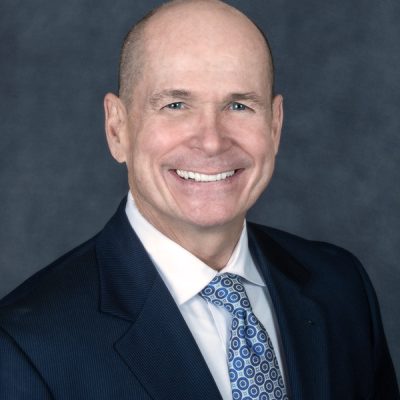Across the nation, there are more jobs available than there are workers who can fill them. Though the U.S. unemployment rate has dropped to its lowest level in nearly two decades, many businesses are struggling to overcome the challenges of worker shortages. Consistently flat wages, less bargaining power, and increased productivity and market concentration (i.e. fewer companies own a greater share of revenue in their sectors) are also adding to economic woes felt by employees and employers alike.
The impact of a labor shortage is far-reaching. It affects private businesses and public entities in a range of industries – from farm land to Silicon Valley. It’s also having a major impact on the Florida Highway Patrol and the trucking industry. The larger effect, and more concerning for advocates, is how that may affect public safety on our state’s roads.
FHP’s Workforce Shortage
A recent study showing that close to a thousand new residents arrive in Florida each day would make most people think our essential state agencies are growing with the population boom. Unfortunately, that isn’t true. According to a recent article from WWSB 7, the Florida Highway Patrol isn’t just struggling to add more troopers in response to more residents and motorists; it’s also losing state troopers.
As the FHP reports, it’s currently down nearly 200 troopers statewide, with some regions being short dozens of troopers. There are many reasons behind this, and many of the same reasons that have caused Florida Highway Patrol trooper shortages in the past. That includes problems with low pay, dangerous work, and unusual schedules that make many wary of wanting to apply.
Though some FHP wages were boosted under Governor Scott to bring them out of their spot as the lowest paid agency in the country, the toll of inflation has caught up. Since 2010, the FHP has reported a loss of nearly 1,000 troopers, usually to higher-paying agencies or retirement. Couple that with a lack of career development plans for employees that makes it harder for troopers to plan a future, and you have a chronic shortage which not only puts everyone on the road at risk, but also strains local law enforcement, who have to fill the gap by working traffic accidents and complaints usually handled by the FHP.
The FHP is the main agency tasked with patrolling public interstates, and it has become a shell of what it formerly was in terms of available troopers. That can have big consequences for public safety, including:
- Less time and fewer resources for proactive enforcement, including efforts which target drugged or drunk driving.
- Reductions in speeding tickets, which can result in more speeding motorists on the road, and more car accidents – of which Florida recorded roughly 400,000 in 2018 alone.
- Slower response times to daily incidents of hit-and-run crashes, wrong-way or multi-vehicle collisions, and wrecks resulting in serious injuries that could quickly turn fatal.
- Fewer resources dedicated to the state Department of Transportation’s Commercial Vehicle Enforcement unit, which was merged into the FHP and has since steadily declined in numbers so that public officials only work during the day – though trucks, buses, and tractor-trailers operate (and potentially commit violations) at all hours of the day and night.
- Longer hours for troopers, increasing their risks of being less effective and more likely to cause accidents themselves.
While the FHP grapples with cost-efficient solutions, it has become all too clear that an understaffed FHP won’t be able to sustain being stretched so thin – nor able to adequately patrol our interstates.
Trucking Driver Shortages
At the same time the FHP struggles to fill positions and protect our roads, hiring interstate truck drivers has never been more difficult. Though the truck driver shortage has been ongoing for around two decades, it’s reaching a critical point, especially with recent increases in demand, high turnover rates, and waves of retiring baby boomers. The American Trucking Association estimates trucking companies need to hire roughly 60,000 drivers – and predicts that may worsen to 100,000 in just a few years.
To combat the problem, the trucking industry has implemented a few general strategies, including:
- Increasing pay – Just as with the FHP, trucking companies have struggled to attract drivers. Naturally, that means increasing pay as a simple market reaction. It also means raising pay (and benefits) enough to make trucking a more attractive employment option, and to compensate for the drawbacks associated with the work, such as unusual schedules and time away from home.
- Attracting new drivers – The trucking industry overall has its eyes set on overcoming the stereotypical trucker image by working to attract new drivers who don’t fit that mold. This includes women, who only comprise about 8% of long-haul truckers. It’s also manifested in the industry’s efforts to lobby lawmakers and start pilot programs that allow drivers 18 years of age or older to drive interstate rigs, as opposed to the law’s minimum age of 21.
- Making the job easier – Trucking companies are looking for ways to make drivers’ work easier, which means reducing wait times and hassle with shipping companies and distributors, employing better technology, and even decking out trucks with modern conveniences.
While these approaches may help change what the trucking industry will look like, experts are still unsure as to whether they will have a large enough impact to cover the growing gap. Additionally, safety advocates are concerned that the shortage and less-savory tactics taken by trucking operators will increases risks of serious trucking accidents. For example, increased risks may stem from:
- Overworked truckers, hours-of-service violations, and greater potential for driver fatigue / drowsy driving.
- Greater reliance on younger drivers, including 18- and 19-year-olds who the CDC notes are about 3x more likely than drivers 20 or older to cause fatal wrecks.
- Dangerous short cuts and more violations of trucking regulation, such as cargo violations (overloading trucks), HOS violations, departures from driver drug and alcohol testing protocol, and more.
- Lax hiring or retention policies, including a lack of background checks, commercial driver’s license qualifications, health condition screening, and disciplinary action over regulatory and traffic accidents.
Protecting Your Rights After a Motor Vehicle Accident
Economics, advocacy, and politics aside, labor shortages affecting the FHP, trucking industry, and other private and public businesses could very well mean greater risks on Florida roads. Though less enforcement and corporations under pressure could very well give rise to bad actors, those bad actors can be held accountable for their negligence, carelessness, and wrongful acts when they harm victims in preventable accidents.Todd Miner Law®️ is an Orlando personal injury firm led by a nationally recognized Florida Trial Attorney who is also a former prosecutor and former insurance defense attorney. Our team is readily available to help victims protect their rights after all types of motor vehicle accidents, and guide them through the process of securing the sense of justice and the financial compensation they deserve. Contact us to speak with a lawyer.








